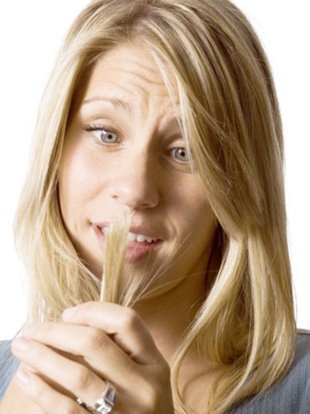You probably think about your hair on a daily basis — whether you’re having a good or a bad hair day or maybe wondering whether you should try a new style from the pages of your favorite magazine. But you might be missing clues that your hair is revealing about your health. Research shows that changes in your hair’s look, texture, or thickness can be signs of underlying health conditions, like thyroid disease. Here’s how you can tell whether your hair changes are due to a health problem or genetics, starting with clue number one: Sudden changes, such as a lot of hair loss, are more likely linked to a treatable health problem than are gradual changes, such as thinning.
The next time you look in the mirror, look out for these hair symptoms.
1. Gray Hair and Stress
Anyone who has watched presidential hair from campaign to campaign knows this: Stress turns hair gray. Oxidative stress may affect pigment producing cells. Dermatologists do not know exactly why trauma and stress turn hair gray for some individuals and not others, but when your hair grays is dictated in part by your genes.
2. Brittle Hair and Cushing’s Syndrome
Brittle hair is one symptom of Cushing’s syndrome. But, there are many other more obvious symptoms of this rare condition caused by excess cortisol, including high blood pressure, fatigue, and back pain. Treatment for Cushing’s syndrome may include changing the dose of medications that could be causing the condition. Other people might need surgery, chemotherapy, or radiation therapy to correct the adrenal gland’s overproduction of cortisol.
3. Dry, Thinning Hair and Thyroid Disease
People who have the thyroid disease called hypothyroidism might notice increased hair shedding and a change in appearance. Hypothyroidism means your thyroid isn’t working effectively. It can change the look of your hair and cause other symptoms, such as tiredness, cold intolerance, joint pain, muscle pain, a puffy face, and weight gain. A thyroid-stimulating hormone (TSH) test will diagnose the condition, and treatment entails taking thyroid medication.
4. Hair Shedding and Anemia
If you are suddenly noticing a lot more hair in your hairbrush or on your shower floor, this could be a sign that your body has low iron stores, or anemia, and may warrant testing. This is another blood test we do when you complain of hair changes. Your physician may order this blood test for people who are vegetarian or for women who have heavy periods, both of which increase the chance that hair changes are due to low iron. Iron supplements or a change in diet to include more iron-rich foods can help you keep your hair.
Hair shedding can also happen (temporarily) with sudden changes in estrogen levels and is often noticed after pregnancy or stopping birth control pills.
5. Hair Thinning and Protein Deficiency
Protein is essential to building your hair, so if you don’t get enough, you may notice hair loss or thinning. Protein deficiency isn’t a problem for most Americans. All you need is one serving a day of a high-protein food, about the size of a deck of cards. But people who have gastrointestinal difficulties or who just had gastric bypass surgery may have problems digesting protein. These specialized situations will have to be managed with your doctor’s help. But most hair thinning, even in women, is likely due to genetics.
6. Yellow Flakes and Dandruff
Yellow or white flakes in your hair, on your shoulders, and even in your eyebrows are a sign of seborrheic dermatitis, more commonly called dandruff. Over-the-counter specialty hair shampoos and prescription cortisones can help manage this condition. Dandruff, which can be caused by yeast on the skin or an inflammation of the skin, is usually worse in winter.
7. Damaged Hair
Although hair can tattle on your health conditions, patients more commonly complain about the damage done by coloring and heat-treating hair to within an inch of its life. Both heat and color leave you with brittle, dry hair that’s hard to maintain. But perhaps most importantly, highly treated hair just can’t tell you what you need to know about your health.
Article adapted via







